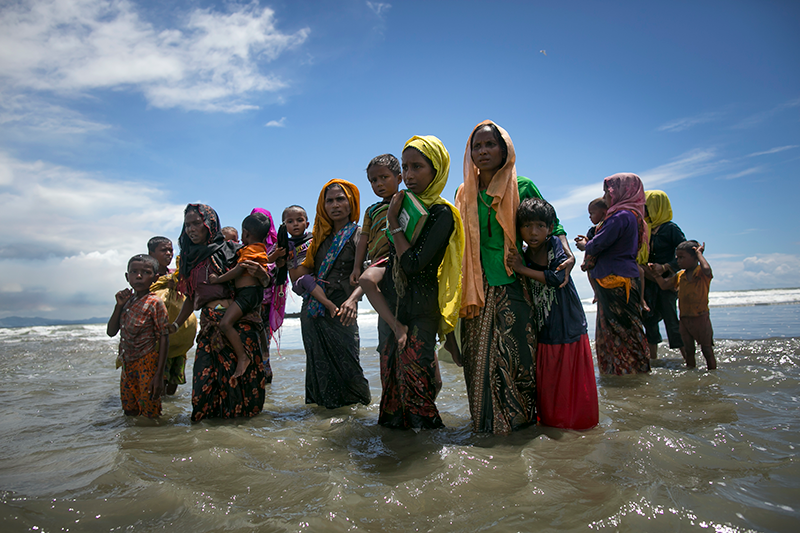



 Khalil Abdul-Rahman
Khalil Abdul-RahmanConsultation with regard to planning and facilitating public affairs of the state, organizations, workgroups, and joint projects requires an easy to use system. Here’s why and references on how to implement it in your work.
When the number of people involved in making a decision and carrying it out exceeds seven, it becomes very difficult for them to be effective. This is mainly because the number of social interactions during both the decision-making and execution process becomes too large and managing the interactions becomes too complex without the help of an appropriately designed system.
As a reference, think back to those situations where you participated in a forum during which diverse ideas were presented by more than seven people. Was there enough time for all the points of view to be heard? For those who presented evidence to support their viewpoints, was the evidence presented verbally, or by hard copy documentation, or by video, or by some combination of these? Was the evidence captured and stored for later use?
Then there are the issues associated with the setting in which the discussions occurred. Was it an open environment where all voices were given fair consideration? When someone who had spoken earlier needed to respond to comments directed to him at some point later in the discussion, was he allowed to respond? If discussions became “heated” was there a moderator who kept things under reasonable control?
These and other factors highlight the need for implementing an easy to use system that helps us conduct our affairs using shura. About four years ago in 1434ah, a small group of Muslim brothers and sisters decided to start the process of determining the requirements that should be met for developing such a system. Early on in the effort, it became clear that a more diverse set of skills beyond those of the people involved was needed to actually complete the development.
Years later while working on a different project, some of them came to know and appreciate the software design and development skills of brothers Muhammad Abdul Latheef (latheef.sma@gmail.com) and Uvais Ahamed (uvaisahamed1982@gmail.com). As they became familiar with the intent and objectives of the shura system, both enthusiastically embraced the challenge and offered their help. After approximately a year of intense effort, the first phase of the system named ShuraForAll (shuraforall.org) was completed in Rajab 1438.
In case you’re wondering what role such a system can play in the Islamic Movement, note that the practice of shura is rooted in the din of Islam (the many examples of the use of shura in public affairs by the Messenger of Allah (pbuh) and his Companions) and divine revelation (42:38 and 3:159). The system provides a practical way for people throughout the world to engage in shura in matters of public interest. It enables them to integrate consultation into their workgroup action, the initiatives they take, and the stances they adopt. It helps individuals develop their intellect as they provide evidence to support their viewpoints. One of the outcomes of these benefits is that it facilitates establishing a culture of consultation through its widespread use.
People who use shura regularly come to expect that their peers, who include their leaders, will do the same. They know through real life experiences that mutual consultation improves their ability to make good decisions. They learn that to get the commitment needed to make the recommended course of action happen, people have to know that their input and involvement really matters. So if we want the Islamic Movement to move in the direction of open and informed participation, then we should work toward establishing shura as the principal choice to conduct our affairs.

Also note that no widely used system of shura exists today among committed Muslims that enables us to make good decisions on matters of public interest. Unlike functions akin to government, administration, the judiciary and others, shura has not been developed into an enduring institution. During the formative years of the Islamic society in Madinah, the consultative process was marked by spontaneity, simplicity, honesty, and open exchange of viewpoints. It was conducted regularly and effectively.
As the number of Muslim citizens increased and their territories expanded, the complexities of implementing shura grew. Without a systematic way of dealing with these challenges, it became increasingly difficult to properly engage people in the consultative process. The conditions were made worse by the actions of many of the ruling successors who managed people’s affairs single-handedly, refusing to grant others a meaningful share in decision-making. As a consequence the use of shura faded into an obscure practice.
Today, the typical mindset among Muslims is that shura is mostly confined to elections or the kinds of situations where government leaders or leaders of other organizations seek the advice of experts. Many of us feel that we are not qualified to participate in the consultative process. We often think that shura requires following a strict set of rules that has to be led by a scholar or some person with special credentials.
But the Messenger of Allah (pbuh) and others (not just leaders) who followed his example sought advice on a wide range of topics from a wide array of people who possessed a wide variety of skills and capabilities. This they did while following Allah’s (swt) command to “conduct their affairs with mutual consultation.”
If you want to give serious consideration to using a systematic approach to implementing shura, then consider these examples.
Akil K. Rahim (akrahim@mac.com) consults with a variety of community organizations on matters related to community and family development. He uses shura to help individuals and groups take a structured approach toward making better decisions on issues of importance and consequence to them.
Maryam Maishanu (admin@learn onitacademy.com) and Muhammad Abdul Latheef (latheef.sma@gmail.com) are working on joint training and software development projects where they and other stakeholders use a shura tool to determine the best courses of action to take as their work evolves over time.
Afeef Khan (afeefkhan@gmail.com) is using a shura system to bring together physicians, researchers, and other people to share their insights toward developing a people’s cure for Parkinson’s disease. Part of the idea is to collect and organize information into an active repository of “alternative” approaches that may help in relieving the condition. Instead of trying to manage symptoms, he is looking to understand a cause of the condition that can be specifically targeted by alternative therapies.
There are others who have begun to actively integrate a shura system in conducting their affairs. In so doing, they are taking the necessary steps to determine the best courses of action, both individual and collective that are consistent with making good decisions with broad participation. We all have the right to be consulted concerning our public affairs and shared interests. And it is our responsibility to establish a culture of shura to ensure that we and our leaders exercise this right in the best way.
In regard to highlighting some strategies, tools, and methods for achieving social and economic justice, this installment in a series of articles is intended to share ongoing efforts to implement Qur’anic and prophetic guidance in our societies. Guest writers are invited to submit their stories of what is being done to establish the practical application of Islam in our communities. Accepted articles may be edited to conform to Crescent International publication standards.
